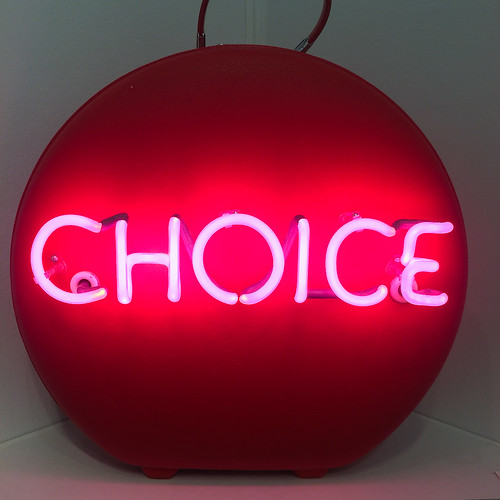 We choose so many things every day. We choose what we wear, we choose where we go, we choose who we are with, and we choose when we do all of these things.
We choose so many things every day. We choose what we wear, we choose where we go, we choose who we are with, and we choose when we do all of these things.
Sort of.
We work for a living, most of us, so the choice is whether we should work and get paid to pay others for other things. It’s a social contract born into, where we expend time and energy to get things that we need. We start with the basics, hopefully, of food, of shelter, and of clothing. Maybe we’re lucky enough to have those basics when we are small and defenseless humans, children, and maybe we aren’t forced down other paths to get those things. Then, when we are considered adults by society – and let’s be honest, some of us aren’t when society deems it so – we thrust ourselves into the world and stop depending on the elder humans to take care of our needs. If you’re reading this while living with your parents, I’m not judging, but others are because of the societal contracts we inadvertently signed with our first screams.
Then we deal with our wants.
“The human race is a monotonous affair. Most people spend the greatest part of their time working in order to live, and what little freedom remains so fills them with fear that they seek out any and every means to be rid of it.” – Johann Wolfgang von Goethe, ‘The Sorrows of Young Werther’
 And here we are. So we decide what to do with this ‘free time’, with this ‘freedom’, and we are presented things to buy. We are presented with things to occupy our time.
And here we are. So we decide what to do with this ‘free time’, with this ‘freedom’, and we are presented things to buy. We are presented with things to occupy our time.
A man, looking at those urinals, will see choices and after being a man long enough will pick one basically out of habit. A woman offered these choices will probably be dismayed, but that means they probably made the choice to go into the men’s room instead of the women’s room. By all means, I have no issues with that, so let’s not get lost in who has the right to use which bathroom. I’m just writing about freedom and the illusion of choice, and this image popped up in a search.
The choices we are given are largely decided by others, and they’re not really choices if we consider that. You could have gone and done anything else, but you’re here instead, reading this entry, which I’d say was a choice. I’d hope it was a good one. But without me writing this and sharing it, you would not have had that choice, without others writing things to compete with your attention, you would not have had that choice.
I didn’t data mine to write this, I didn’t tailor it for you, I didn’t do any of that. I simply felt like writing it. I don’t care about SEO or any of that crap here- maybe someday I will, but I doubt it.
The point is that I didn’t use any ways to induce you to be here. That gives you more of a choice in a world where you are presented things you like based on things you have liked, sticking you into a rut of thinking that you’re comfortable with, that you feel safe with.
If you’re comfortable and feeling safe, you’re not stretching. If you’re not stretching, you’re not growing. And if you’re not growing, you’re making the human race a monotonous affair.
Without individuals we see only numbers: a thousand dead, a hundred thousand dead, “casualties may rise to a million.” With individual stories, the statistics become people — but even that is a lie, for the people continue to suffer in numbers that themselves are numbing and meaningless.
We draw our lines around these moments of pain, and remain upon our islands, and they cannot hurt us. They are covered with a smooth, safe, nacreous layer to let them slip, pearl-like, from our souls without real pain.





